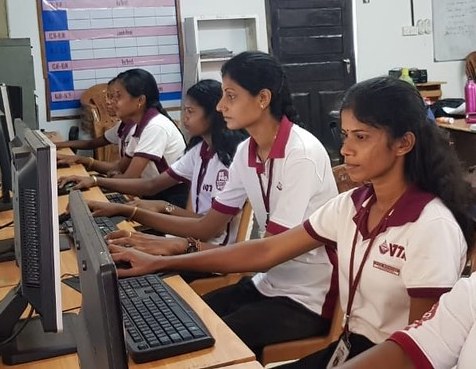Photograph courtesy of CENWOR.
By BGR Staff
In 2022, Sri Lanka’s economy experienced near-total collapse, the most severe crisis of its kind in a century. Fuel shortages took buses, trains, and ambulances off the road. Inflation soared to 50 percent. Schools were shuttered; those students fortunate enough to have classes in session often attended their lessons hungry. Workers’ incomes could no longer pay for such basics as rent, utilities, and food. By the middle of 2022, nearly 5 million people—one-fifth of the country’s population—were estimated as food-insecure by the United Nations.
While the crisis has eased somewhat in the intervening year, costs remain high in relation to incomes, and Sri Lanka’s poor have borne the brunt of the hardship. A long-term BGR partnership has provided support to some of those who were most impacted by the collapse.
The Centre for Women’s Research (CENWOR), a BGR partner since 2011, has been working for nearly four decades to empower women in Sri Lanka. In parallel with its research on gender equality, CENWOR has worked with partners on projects to financially support the educations of impoverished girls and young women in Sri Lanka, focusing on girls who had dropped out of school due to financial and other concerns.
In recent years, CENWOR and BGR have collaborated to promote the access of women from low-income families to obtain technical skills, through vocational programs at a number of Sri Lankan universities and technical institutions. Some of these institutions, such as the government-run Vocational Training Authority, provide basic and middle-level vocational training to students who drop out of the school system before completing their secondary educations. Others, such as the University of Vocational Technology, provide university-level technical educations.
A 2022 partnership between BGR and CENWOR proposed to support the vocational and post-secondary education of 175 young women, providing funding for transportation, food, lodging, and other necessities. By year’s end, the soaring inflation rate had brought an unexpected benefit as the U.S. dollar became stronger in relation to the Sri Lankan rupee: The project was able to fund the part-time or full-time educations of 369 young women in need, who studied such subjects as accounting, computer technology, graphic design, teaching, and automotive work, among many other specialties.
Lakshitha Perera is a third-year medical student at the University of Ruhana. The daughter of a gardener, she was on the verge of giving up on her studies due to her family’s economic difficulties. She applied for support despite being in a field outside of the project’s usual range; an approved grant allowed her to continue her studies.
Sandamini Madushika completed her studies at the Faculty of Arts at the University of Columbo with support from this project. She wrote, “Thank you very much for helping me with my university studies over the years. That help was a big relief for my higher education.”
This article is adapted from reports by CENWOR.





